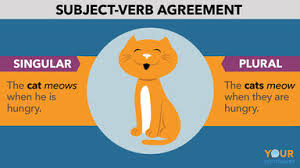Nouns: Definition
Nouns are words that indicate a person, place, or thing.
In a sentence, nouns can function as the subject or the object of a verb or
preposition. Nouns can also follow linking verbs to rename or re-identify the
subject of a sentence or clause; these are known as predicate nouns.
The Subject
The subject in a sentence or clause is the person or thing doing, performing, or controlling the action of the verb. For example:
• “The dog chased its tail.” (The noun dog is performing the action of the verb
chase.)
• “Mary reads a book every week.” (The proper noun Mary is performing the action of the verb read.)
Objects
Grammatical objects have three grammatical roles: the direct object of a verb, the indirect object of a verb, or the object of a preposition.
Direct objects
Direct objects are what receive the action of the verb in a sentence or clause.
For example:
• “The dog chased its tail.” (The noun tail is receiving the action of the verb
chase.)
• “Mary reads a book every week.” (The noun book is receiving the action of the verb read.)
Indirect objects
An indirect object is the person or thing who receives the direct object of the verb. For instance:
• “Please pass Jeremy the salt.” (The proper noun Jeremy is receiving the direct object salt, which receives the action of the verb pass.)
• “I sent the company an application for the job.” (The noun company is receiving the direct object application, which receives the action of the verb sent).
.jpeg)



